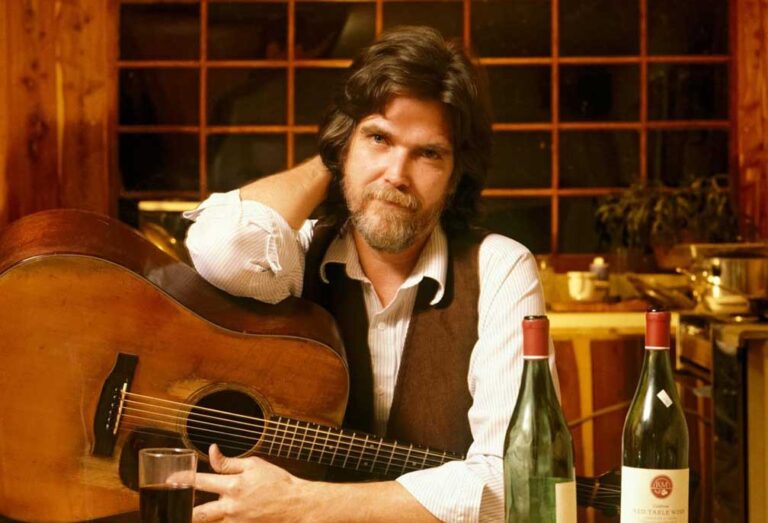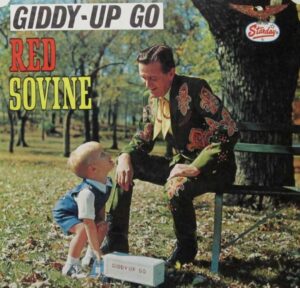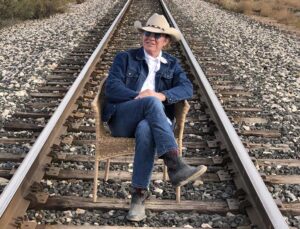Guy Clark (1941-2016) hailed from the West Texas town of Monahans, about midway between two other West Texas towns, Odessa and Pecos.
According to Guy, there wasn’t a lot for a boy to do in Monahans in the 1940s.
Perhaps his favorite pastime was putting a penny on the railroad track and seeing how it turned out after the Texas & Pacific locomotive and rail cars rambled over it. In fact, one of his best-known songs, “Texas 1947,” makes mention of the ritual.
The kid he talks about in the song must have been a lot richer than Clark’s family, though: He stuck a nickel on the track.
Proud to be a Texan
Clark was always proud to be a native son of Texas.
“You have a certain attitude growing up in Texas, a certain independence that you can do anything you say you can do,” he once said. “All the musical forms in Texas are a real inspiration, too — blues, Mexican, German, Czech, Polish — a potpourri of influence. The first year I played guitar, the only songs I knew were Mexican songs.”
While Clark might have started out performing Mexican songs, his songwriting career — if truth be told, he was much better known as a songwriter than a singer — brought all those other forms of Texas music together.
Together with the likes of Jerry Jeff Walker, Waylon Jennings and Willie Nelson, you might say Clark helped bring Texas music “back to the basics of love.” His songwriting library has been prolific, filled with songs like “Desperados Waiting for a Train” and “L.A. Freeway” — and later, “She’s Crazy for Leaving,” “Heartbroke” and “Oklahoma Borderline.”
But for the average listener who’s familiar with Guy Clark-penned lyrics, few stick in one’s mind more than the autobiographical tune Clark described as a love song, “Homegrown Tomatoes.” He released the song — one of only three singles he personally recorded — as a single in 1983. It rose to No. 42 on the charts, his highest charting effort.
Homegrown tomatoes are a ‘way of life’
While it helps to be a Texan to enjoy the full meaning of “Homegrown Tomatoes,” one doesn’t have to hail from this state, where tomatoes are a staple of the diet, to enjoy the song.
Anyone with a deep appreciation of the sweet, slightly acidic flavor of a tomato can relate to Clark’s description of the fruit (or vegetable, if you wish to start an age-old argument). And when it comes to songs describing something (anything!) it’s hard to be as detailed as Clark was with “Homegrown Tomatoes.”
Songwriters have memorialized women of the night, a particularly flavorful beer or an evening spent at a bar with less precision than Clark devoted to this somewhat humorous song. His view of tomatoes is stated in the chorus: “What’d life be without homegrown tomatoes?”
For Clark, tomatoes weren’t just a food; they’re a way of life that he captures to perfection.
Clark makes it clear in the opening stanza that homegrown tomatoes are all-important — and that despite the hard work to grow one a truly great tomato, he’s willing to put in the effort.
“Ain’t nothin’ in the world that I like better
Than bacon and lettuce and homegrown tomatoes
Up in the mornin’ out in the garden
Get you a ripe one, do not get a hard one.
“Plant ’em in the spring, eat ’em in the summer
All winter without ’em’s a culinary bummer
I forget all about the sweatin’ and diggin’
Everytime I go out and pick me a big one.”
In the chorus, not only does Clark question how he’d go on living without homegrown tomatoes, but he also compares them to perhaps a songwriter’s favorite subject — true love (or at least the failed pursuit of it).
“Homegrown tomatoes, homegrown tomatoes
What’d life be without homegrown tomatoes?
Only two things money can’t buy
That’s true love and homegrown tomatoes”
When Clark described the “potpourri” of Texas music, it must have clicked in his brain that the many uses for homegrown tomatoes was another type of potpourri. He lists those uses in the second stanza, and if he left one out, chances are it’s a tomato recipe that never touched a Texan’s tongue.
“Well, you can go out to eat and that’s for sure
But it’s nothin’ a homegrown tomato won’t cure
Put ’em in a salad, put ’em in a stew
You can make your very own tomato juice
Eat ’em with eggs, eat ’em with gravy
Eat ’em with beans pinto or navy
Put ’em on the side, put ’em in the middle
Put a homegrown tomato on a hotcake griddle”
Finally, in the last stanza to his song – one that hasn’t been covered by too many musicians other than John Denver and never became a bona fide hit outside the confines of the Texas Hill Country – Clark sings of his own idea of paradise. And you can bet homegrown tomatoes are near its center.
“If I was to change this life I lead
I’d be Johnny Tomato Seed
’Cause I know what this country needs
It’s homegrown tomatoes in every yard you see.”
Guy Clark’s life in song
“Homegrown Tomatoes” was just a straight section in the highway of Clark’s life in country music. Through the years — both before and after the song’s release — he produced material that became hit songs on country radio.
But Clark was always meant to be in the background, performing in places like Luckenbach, Texas, while sending others to the big stages across the country.
Still, he wasn’t ignored by the critics. Following his death in 2016, The New York Times stated that Clark was “a king of the Texas troubadours,” and described his work as being “as indelible as that of anyone working in the Americana idiom in the last decades of the 20th century.”
When all was said and done, Clark was cremated, something that aligns with the wishes he declared in the final lines to “Homegrown Tomatoes.”
“When I die don’t bury me
In a box in a cemetery
Out in the garden would be much better
Where I could be pushin’ up homegrown tomatoes”
Until next time, in thinking about your own lot in life, remember that one could do worse than being a lover of tomatoes.
Since retiring from a career as an outdoor recreation professional from the State of Arkansas, Kris Rutherford has worked as a freelance writer and, with his wife, owns and publishes a small Northeast Texas newspaper, The Roxton Progress. Kris has worked as a ghostwriter and editor and has authored seven books of his own. He became interested in the trucking industry as a child in the 1970s when his family traveled the interstates twice a year between their home in Maine and their native Texas. He has been a classic country music enthusiast since the age of nine when he developed a special interest in trucking songs.









